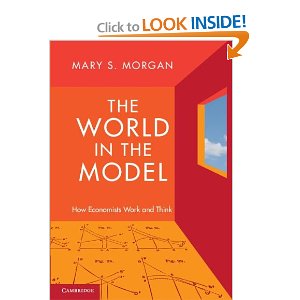
During the last two centuries, the way economic science is done has changed radically: it has become a social science based on mathematical models in place of words. This book describes and analyses that change - both historically and philosophically - using a series of case studies to illuminate the nature and the implications of these changes. In format, it offers a tourist guide to economics by focusing chapters on specific models, explaining how economists create them and how they reason with them. It is not a technical book; it is written for the intelligent person who wants to understand how economics works from the inside out. This book will be of interest to economists and science studies scholars (historians, sociologists and philosophers of science). But it also aims at a wider readership in the public intellectual sphere, building on the current interest in all things economic, and in the recent failure of the so-called economic model, which has shaped our beliefs and the world we live in.
